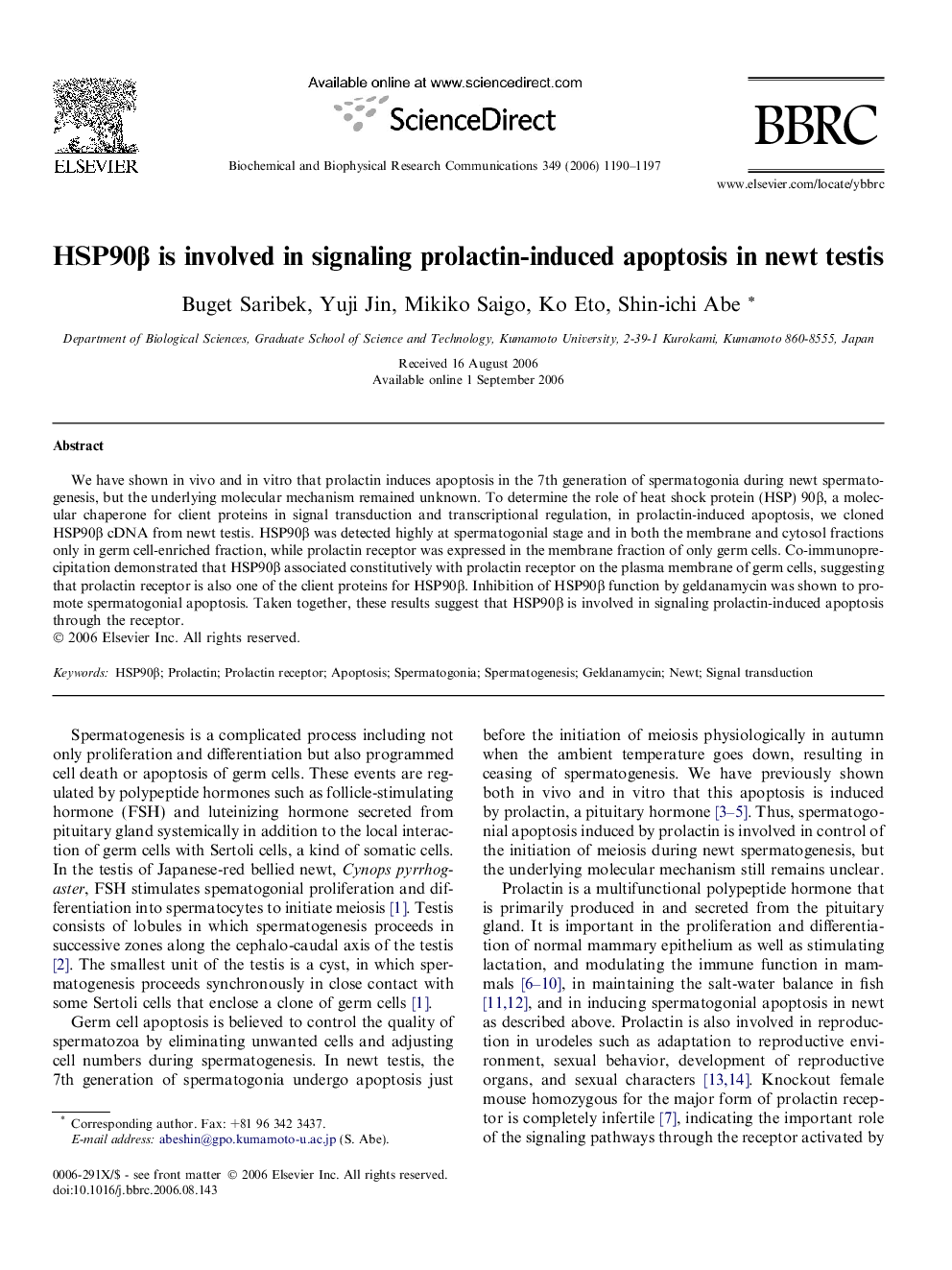| Article ID | Journal | Published Year | Pages | File Type |
|---|---|---|---|---|
| 1938965 | Biochemical and Biophysical Research Communications | 2006 | 8 Pages |
We have shown in vivo and in vitro that prolactin induces apoptosis in the 7th generation of spermatogonia during newt spermatogenesis, but the underlying molecular mechanism remained unknown. To determine the role of heat shock protein (HSP) 90β, a molecular chaperone for client proteins in signal transduction and transcriptional regulation, in prolactin-induced apoptosis, we cloned HSP90β cDNA from newt testis. HSP90β was detected highly at spermatogonial stage and in both the membrane and cytosol fractions only in germ cell-enriched fraction, while prolactin receptor was expressed in the membrane fraction of only germ cells. Co-immunoprecipitation demonstrated that HSP90β associated constitutively with prolactin receptor on the plasma membrane of germ cells, suggesting that prolactin receptor is also one of the client proteins for HSP90β. Inhibition of HSP90β function by geldanamycin was shown to promote spermatogonial apoptosis. Taken together, these results suggest that HSP90β is involved in signaling prolactin-induced apoptosis through the receptor.
